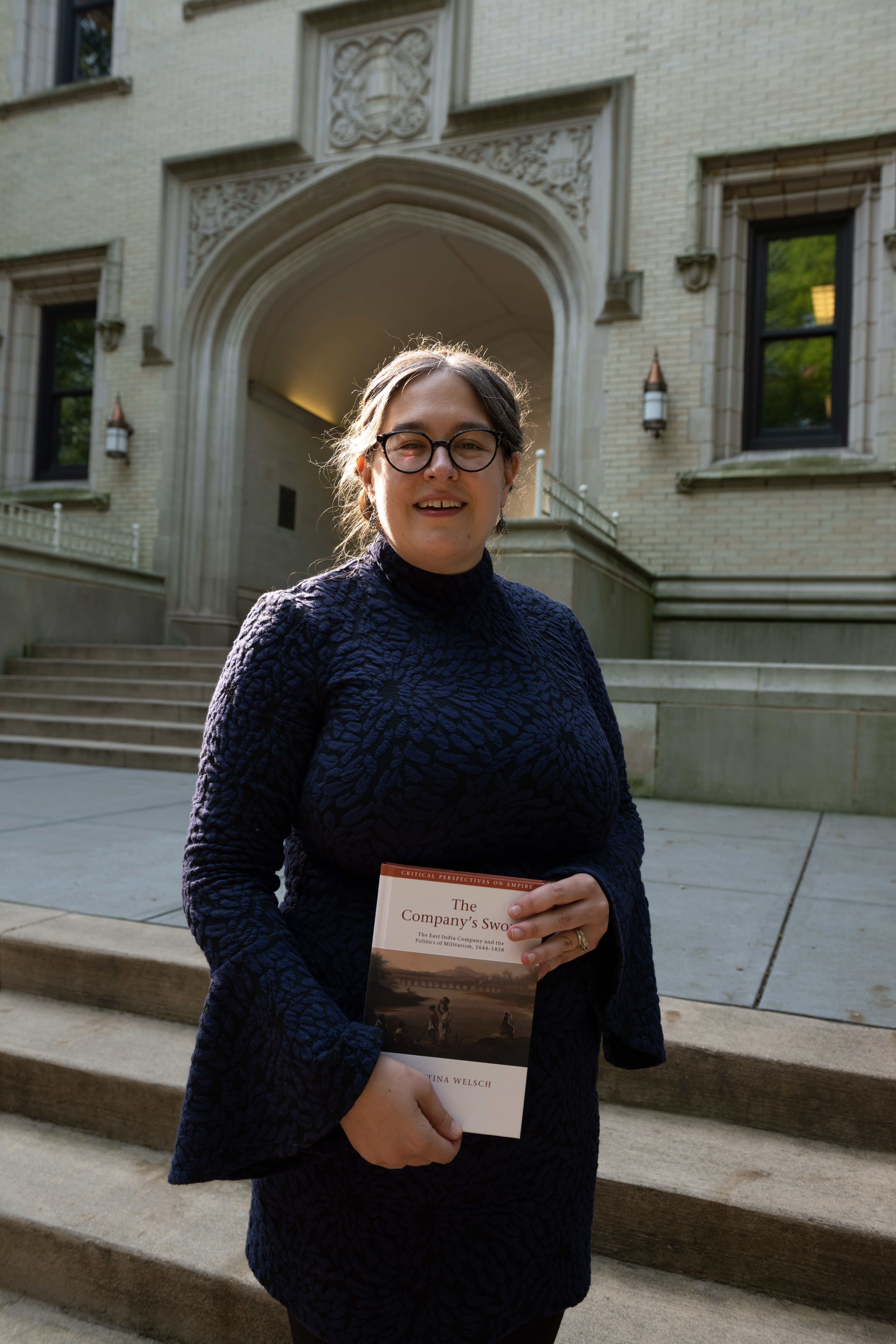In the nineteenth century, British politicians and writers agreed: Britain ruled India “by the sword.” This is hardly surprising as empires almost inevitably rest on force, but Britain’s metaphorical “sword” in India was unusual by any measure. Its armies in India, amounting to hundreds of thousands of soldiers, were not under the control of the Crown. Instead, they were employed by the British East India Company, a private corporation turned colonial state. Restricted from enlisting men from the British Isles, the Company relied mostly on local Indian soldiers, called sepoys, who were in turn commanded by a tiny corps of white officers at the top of a highly segregated military system. Historians have long recognized this body as one of the most indispensable tools of empire—literally, the means through which it expanded and conquered. Less well explored, though, is the role that the Company’s armies played in defining the ideologies and policies of the colonial government.
Historian Dr. Christina Welsch will focus not on battlefield victories or slogging campaigns, but rather on a hidden history of disorder within the army. In 1809, over twelve hundred white officers in southern India mutinied against the Company’s civilian government. This was no orderly protest: mutinying officers even fired on British royal forces sent to restore peace. British onlookers were horrified, condemning the violence as an act of treason that would lead to imperial collapse. Yet, astonishingly, the officers emerged from the chaos with increased power, while their opponents faced disgrace within colonial society. Understanding this spectacular and befuddling drama requires a careful analysis of how the rebelling officers portrayed their role in the empire—not just as military actors, but as the sole guarantors of colonial stability and security. The sepoys they commanded often had very different views on such claims of authority, but the officers’ self-aggrandizement proved convincing to many Britons. Not only does the success of the officers’ claims help explain the events of 1809: it offers new insight into the Company’s rise and fall as a colonial power. More broadly still, it highlights the alarming ways that institutional inequities ripple across state and society.
 Christina Welsch is the associate professor of Britain and its Empire in the history department at the College of Wooster (Ohio). She received her BA from Emory University in 2010 and PhD from Princeton in 2017. Her first book, The Company’s Sword: The East India Company and the Politics of Militarism, 1644-1858 (Cambridge University Press, 2022), explores how military actors influenced the ideology of the colonial state in India. Her second project is an examination of the wars between the British Company and the Indian state of Mysore, arguing that these conflicts were part of a broader, global history of power. She hopes to shed light on the movement of mercenaries, camp followers, soldiers’ families, and others who reshaped the world the colonial state sought to control.
Christina Welsch is the associate professor of Britain and its Empire in the history department at the College of Wooster (Ohio). She received her BA from Emory University in 2010 and PhD from Princeton in 2017. Her first book, The Company’s Sword: The East India Company and the Politics of Militarism, 1644-1858 (Cambridge University Press, 2022), explores how military actors influenced the ideology of the colonial state in India. Her second project is an examination of the wars between the British Company and the Indian state of Mysore, arguing that these conflicts were part of a broader, global history of power. She hopes to shed light on the movement of mercenaries, camp followers, soldiers’ families, and others who reshaped the world the colonial state sought to control.
This program is free and open to the public. The event will be held in the lecture hall of the Cleo Redd Fisher Museum, located at 203 E. Main Street in Loudonville, OH. Doors open at 6:30, while the event begins at 7:00 pm.